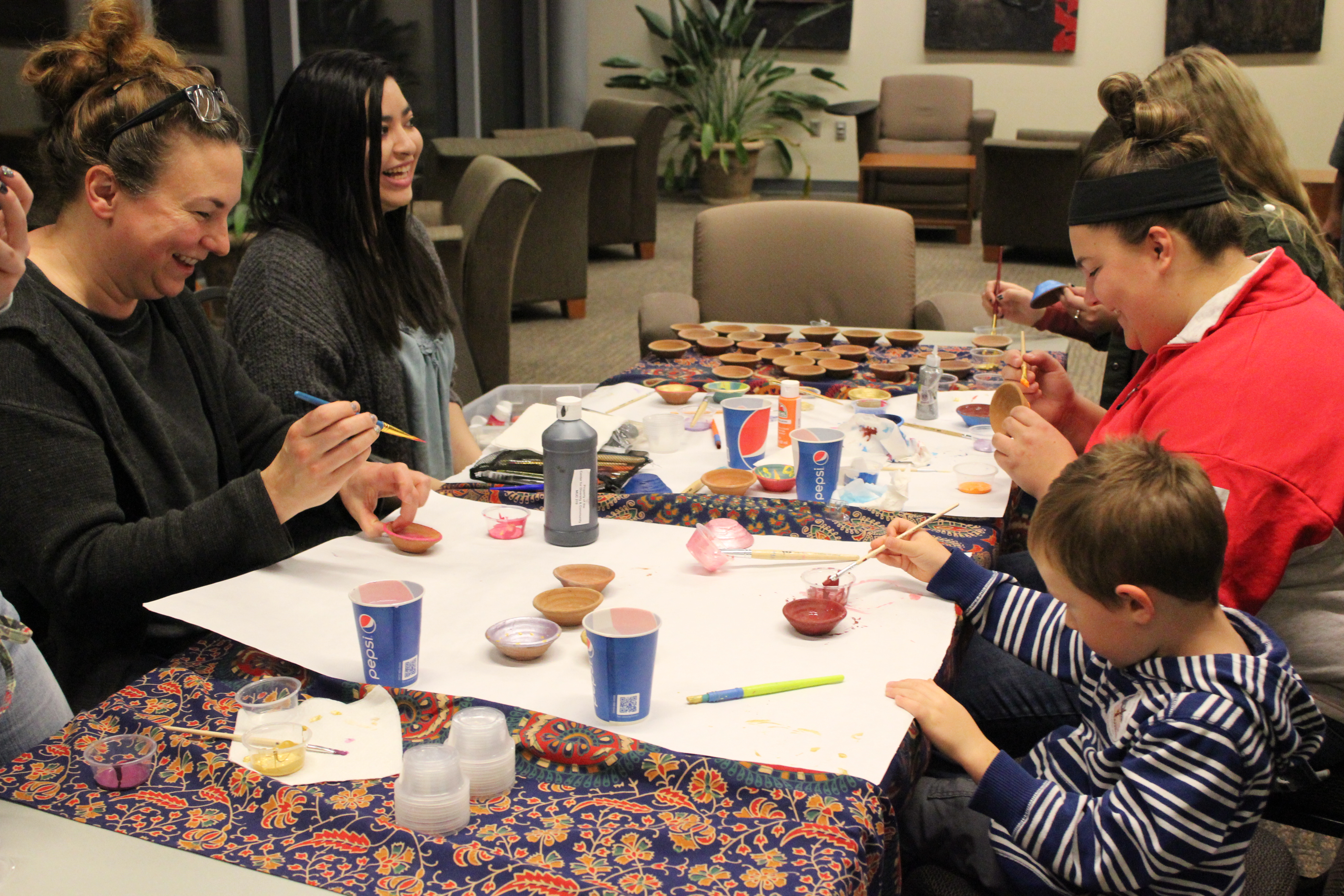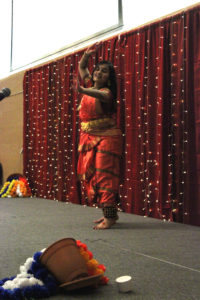
Diwali represents celebration of lights
The Muenster University Center (MUC) Ballroom was transformed into a room full of warmth, lights and colors at the annual Diwali celebration.
Diwali is usually organized by the Asian American Student Association (AASA) but this year, they teamed up with the Center for Diversity and Community (CDC) and the International Club to bring this holiday to USD.
Diwali is a Hindu festival of lights and is celebrated every fall. International students came together to share the traditions of India with the USD community on Tuesday evening.
Naivy Patle, sophomore political science and international studies major, is president of the AASA and helped organize and promote the event.
“People have a perception of Diwali as the festival of lights but it’s more than that,” Patle said. “It’s about celebrating the triumph of good over evil. We also worship many of the Hindu gods and goddesses.”
Typically in India, there is a fifteen-day celebration preceding Diwali. This year, students from AASA, the CDC, and the International Club celebrated with Indian lantern making and cultural performances. For the last three years, AASA has put on the Diwali event. Patle said since this year was bigger than others, they wanted to team up with other organizations.
Patle said because he is a Hindu, Diwali is something he always looks forward to.

“It’s just like Thanksgiving, where people all come together and enjoy a meal,” Patle said. “The whole family comes together and celebrates. And celebrating here, away from home, makes me feel like I’m at home. I think it’s like that for all the Asian community and all those that want to be a part of this festival.”
Yuzina Subedi, first-year business administration major, is a member of AASA and said she was excited to come and simply enjoy the event.
“I’m originally from Nepal,” Subedi said. “It’s called Tihar there. In our country, it’s so much fun. There’s so many lights everywhere in the house.”
Diwali at USD is an opportunity for international students to come together and welcome everyone into their cultures and traditions.
Danielle Charron, sophomore sociology major, said she was roommates with Subedi and learned about Diwali through her. Charron said it’s important to have cultural events like Diwali at USD.
Anita Shrestha, graduate student and president of the International Club, is also from Nepal. In Nepal, Tihar is celebrated, which is a similar festival to Diwali but has its differences.
“We celebrate with different animals that we worship,” Shrestha said. “We have lights going on for five days. We also worship the goddess of health and prosperity. Different age groups go to houses and sing songs, and if people like it, they give them sweets or money.”
“You can become more aware of what other countries and cultures are like,” Charron said. “Honestly, we’re pretty blindsided with American culture. We don’t really learn about other countries, so I think this gives a good opportunity to learn about this stuff.”
Diwali is open to everyone in the USD and Vermillion community. This year, tickets for general admission were completely sold out and the room was full of people eager to learn about the celebration of Diwali.
“The special thing about it is it’s not limited and even different countries that don’t have Diwali are participating in it,” Shrestha said. “I think it’s very important to exchange cultures. Being an international student, that is what we want to do. I think that spreads our knowledge. Also being inside USD, you get to see the world within in it, so it’s very overwhelming and good to know other people.”
Jaid Freestone, sophomore biology major, said she wanted to attend Diwali because it was an opportunity to come out and have fun while engaging with a new culture.
“It expands everyone’s worldview and it’s extremely enlightening for people to experience these things from around the world,” Freestone said. “This is an excellent example of something you can experience where you live when it’s a tradition across the world. I just think that’s really cool.”

